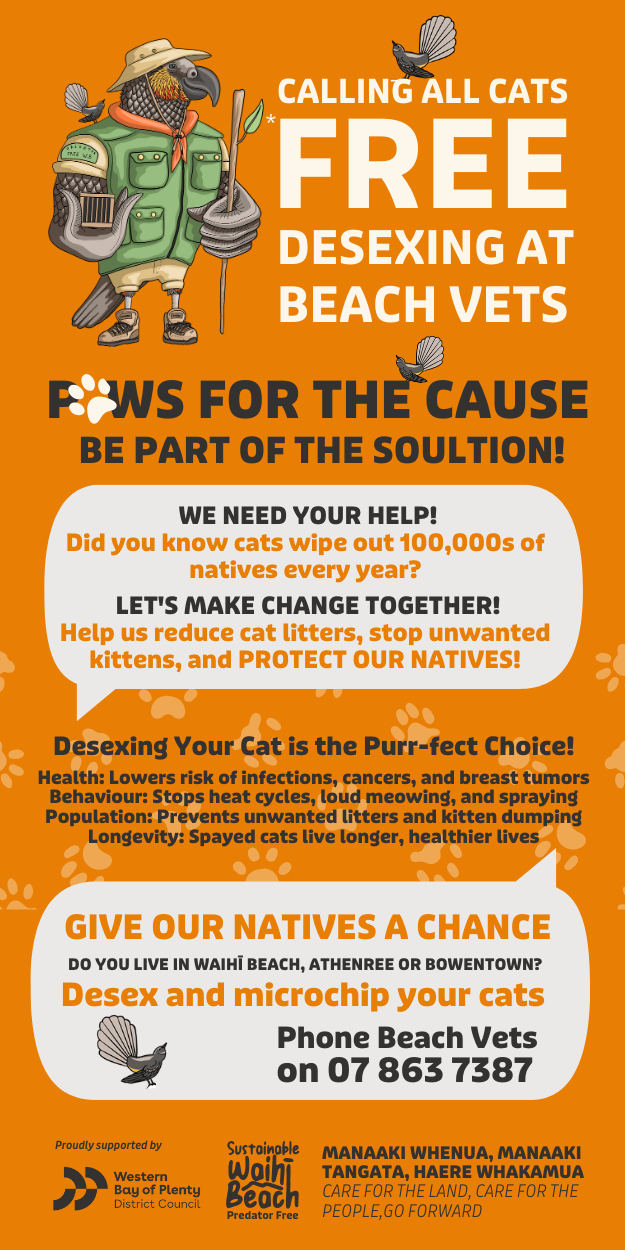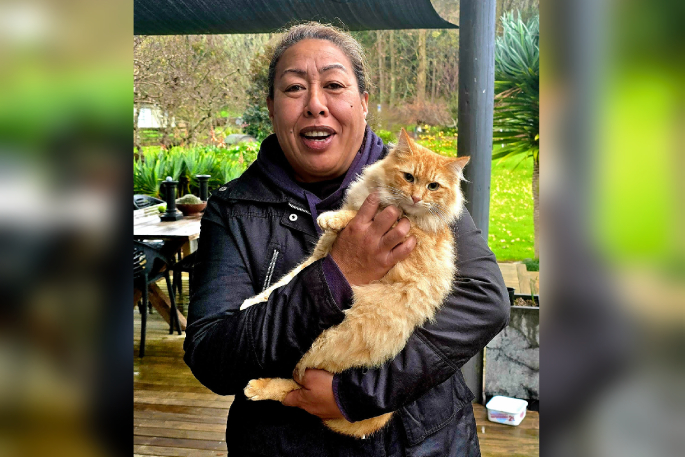Have a cat? It’s time to get it desexed for the sake of our native species.
In a bold and furry move, Predator Free Waihī Beach has teamed up with Waihī Beach Vets to offer free cat desexing to resident felines of Waihī Beach, Athenree and Bowentown.
The offer includes microchipping and even a free collar and bell, while stocks last.
Predator Free Waihī Beach spokeswoman Pippa Coombes said this community initiative tackles two major goals: protecting native wildlife and promoting responsible pet ownership.
“We love our pets, but we also love our native wildlife,” Coombes said.
“This initiative is a win-win. Fewer unwanted litters means fewer stray cats preying on our native species. We have so many kittens dumped here at the beach, they end up starving to death, or dying of disease, it’s just a cruel and unnecessary thing to do.”
Coombes said unneutered cats can have a major impact.
“One pair can produce nearly 4000 kittens in just six years, each with the potential to severely destroy local native bird and lizard populations. With over 471,000 native creatures already saved through community efforts, the work must continue,” Coombes said.
Waihī Beach Vets owner Pip Jones said desexing doesn’t just prevent overpopulation of felines – it improves each cat’s overall health.
“Spayed and neutered cats live longer, healthier lives and are less likely to roam, spray or fight.”
Athenree Wetlands volunteer Robyn Pereria was one of the first residents to take part in the programme.
“The whole process was really straightforward. We filled in a funding form, and the free collar and bell were such a thoughtful bonus,” Pereria said.
“My niece and I each had two cats spayed to help protect our native wildlife and stop the cycle of endless litters. That was our main motivation – we took advantage of the scheme and got Bronco, Cornflake, Leila and Ninja done.
“That’s a lot of kittens we’ve prevented from putting pressure on our precious native species. With the collars and bells, the birds get a fair warning. It feels good, and it’s a win for us and a win for our precious taonga.”
Coombes said desexing also reduces the risk of infections, cancers in cats and unwanted behaviours.
“It prevents kitten dumping, helps reduce the number of roaming, hungry cats and contributes to a more balanced, sustainable environment for everyone, two-legged and four-legged alike.”
To attain free desexing and microchipping vouchers, contact Beach Vets on 07 863 7387.




0 comments
Leave a Comment
You must be logged in to make a comment.